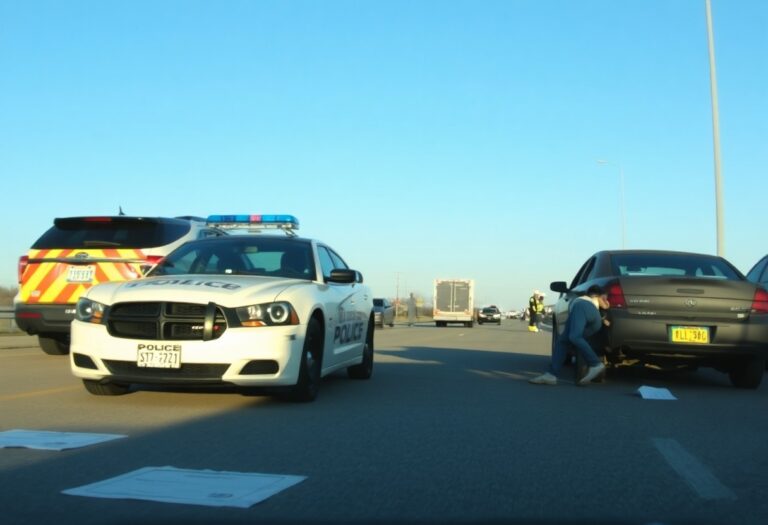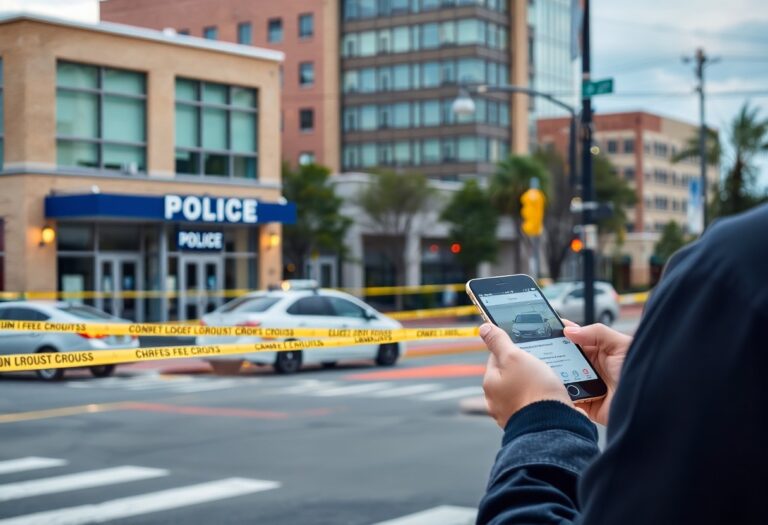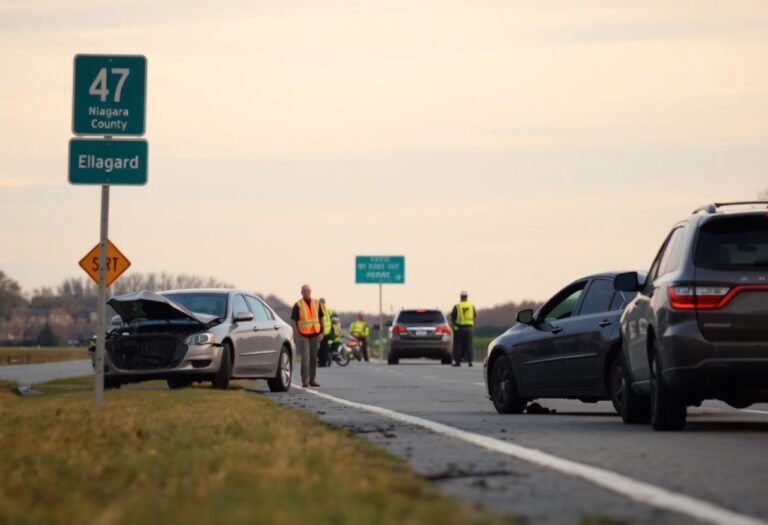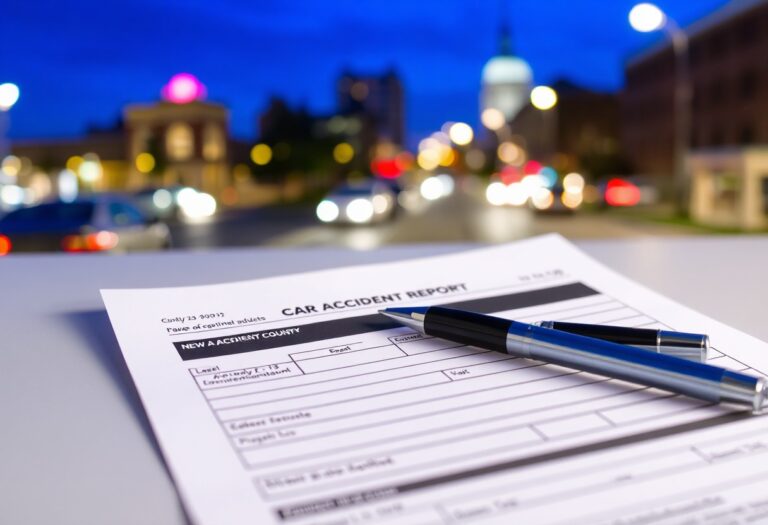West Virginia is a stunning state known for its beautiful landscapes, but the reality is that car accidents can happen anywhere, including in Nicholas County. If you find yourself involved in an accident, understanding how to obtain and interpret your car accident report is necessary for navigating insurance claims and legal processes. This guide will equip you with all the information you need to access your report efficiently and ensure that you are fully informed about your rights and responsibilities in the aftermath of an accident.
Car Accident Reporting Process in Nicholas County
Understanding the car accident reporting process in Nicholas County is necessary for effectively documenting the incident. After a car accident, obtaining a complete accident report can significantly help with insurance claims and any potential legal matters. The process typically involves filing a report with local law enforcement and may require you to gather specific information about the accident scene, vehicles involved, and witnesses.
The Steps to File an Accident Report
To file an accident report in Nicholas County, start by contacting the local police or sheriff’s department as soon as possible after the incident. Provide them with accurate details about the accident, including the location, time, and parties involved. Following the investigation, ensure you obtain a copy of the official report for your records and to present to your insurance provider.
Key Agencies Involved in the Reporting Process
The primary agencies involved in the car accident reporting process include the Nicholas County Sheriff’s Department and, if applicable, the West Virginia State Police. These agencies take responsibility for responding to accidents, conducting investigations, and compiling reports.
When involved in a car accident, you’ll most likely interact with the Nicholas County Sheriff’s Department, which handles incidents occurring within the county. If your accident involves state highways, the West Virginia State Police may also respond and generate a report. Additionally, local insurance agencies may play a role in guiding you through the process of obtaining the report and submitting claims. Your cooperation with law enforcement and on-scene documentation will aid in ensuring a comprehensive report is generated, which benefits all parties involved in the accident.
Decoding Your Accident Report
Understanding the intricacies of your accident report can greatly assist you in navigating the aftermath of a vehicle collision. Your report contains critical information such as accident details, insurance data, and eyewitness accounts. Decoding this document can help you assess liability, understand the facts surrounding the incident, and prepare for any subsequent legal actions. Mastering the elements of your report simplifies communication with insurers and legal professionals, ultimately empowering you during this challenging time.
Understanding the Key Information on Your Report
Key information typically includes the date and time of the accident, names and contact details of those involved, insurance information, and any notes from the investigating officer. This section may also document the specific location and the conditions at the time of the accident, such as visibility, weather, and road conditions. Beyond the mere facts, the report serves to convey who was at fault and any citations issued. Understanding these components allows you to navigate claims and disputes with confidence.
Common Misinterpretations and How to Avoid Them
Misreading your accident report can lead to misunderstandings, particularly regarding liability and damages. Many individuals mistakenly assume the officer’s interpretations are final, which can skew their approach to insurance claims. You can avoid these pitfalls by carefully reviewing all entries and clarifying any ambiguities with your local department or a legal expert.
A common misinterpretation arises from the officer’s notes, where you may see terminology that seems definitive but is rather subjective. Terms like “negligent” or “irresponsible” might give the impression of fault, yet these are often based on an officer’s observations rather than factual conclusions. Additionally, some overlook discrepancies in witness statements or accident diagrams included in the report. To ensure you don’t misinterpret critical details, take time to read through each section, ask questions about unclear parts, and involve legal counsel if necessary. This meticulous approach not only prevents misunderstandings but also bolsters your position if you need to challenge findings or negotiate an insurance settlement.
Navigating Insurance Claims After an Accident
Filing an insurance claim after a car accident can be a complex process, requiring diligence and attention to detail. You’ll need to gather relevant documents, including your accident report, medical records, and any photographs from the scene. Understanding your policy’s coverage limits and deductibles can help you avoid misunderstandings with your insurer. Typically, keep all communication with the insurance company documented to ensure that your claims process goes as smoothly as possible.
Essential Elements of a Claim Based on Your Report
Your accident report serves as a foundational document for your insurance claim, outlining the facts of the incident, including the time, location, and parties involved. Key details—like witness statements and measurements described in the report—can strengthen your case significantly. It’s vital to ensure that all information in the report is correct and aligns with your insurance company’s requirements to avoid delays or denials.
Pitfalls to Avoid in the Claims Process
Many individuals unknowingly jeopardize their claims by failing to disclose important information or by rushing to settle. Avoid providing recorded statements to insurance adjusters without understanding the implications, as they may use your words against you. Additionally, settling too quickly may prevent you from claiming future expenses related to your injuries and vehicle damage.
Further pitfalls include accepting the first settlement offer without evaluating your actual costs. Insurers often aim to minimize payouts, so stay informed about the full extent of your medical and repair expenses before agreeing to anything. Also, be cautious about assuming fault based solely on initial assessments or reports. Fault can sometimes be subjective and could change depending on further evidence; hold off on admitting liability until all facts are fully understood. Always consult with a legal professional when in doubt, as their expertise can shield you from common mistakes and ensure a fair outcome.
Legal Insights: When to Involve an Attorney
Involving an attorney after a car accident in Nicholas County can significantly impact the outcome of your claim. If your situation includes any of the following complexities—like significant injuries, conflicting accounts of the accident, or disputes with insurance companies—seeking legal representation can provide vital support. An attorney brings expertise in navigating local laws and can help you build a strong case while ensuring your rights are protected throughout the process.
Recognizing the Signs You Need Legal Representation
Not every accident requires an attorney, but certain situations definitely do. If you experience severe injuries, your medical bills pile up, or liability is disputed, these are strong indicators that you should consult with an attorney. Additionally, if negotiations with insurance companies become overwhelming or if they deny your claim, having professional legal guidance can be invaluable to securing fair compensation.
How Your Accident Report Influences Legal Outcomes
Your accident report plays a pivotal role in shaping the legal landscape of your case. The details contained within the report—such as witness statements, physical evidence, and officer observations—are foundational in determining fault and liability. This documentation is often scrutinized during negotiations or court proceedings. For instance, a well-documented report with clear indications of fault can significantly bolster your case against an at-fault driver, enhancing your chances of receiving the compensation you deserve.
Moreover, accident reports can have lasting implications for your claim. If the police report attributes blame to you, it may weaken your negotiating position with insurance companies or complicate legal proceedings. Conversely, a report that accurately reflects the circumstances surrounding the accident and supports your version of events can pave the way for a smoother claims process. Having an attorney review your report ensures that it is used to your advantage, enhancing the potential for a successful outcome.
Local Resources for Accident Victims
After a car accident in Nicholas County, a variety of local resources can assist you in your recovery journey. These resources range from medical facilities to support groups that specialize in helping accident victims navigate the consequences of their experiences. With numerous options available, you can find the right services tailored to your specific needs, making it easier to cope with the aftermath.
Support Services Available in Nicholas County
Numerous support services exist for accident victims in Nicholas County, offering emotional and financial assistance. Organizations like the Nicholas County Medical Center provide medical care, while local counseling services help you process trauma. Additionally, advocacy groups can guide you through insurance and legal processes, ensuring you receive the support you need.
Community Organizations and Their Roles
Community organizations play a significant role in supporting accident victims in Nicholas County. For example, the Nicholas County Coalition Against Domestic Violence and the United Way of Nicholas County offer comprehensive resources for individuals and families affected by accidents. They facilitate connections to emergency funds, medical consultations, and vital psychological support, fostering recovery and resilience among community members.
These community organizations extend their efforts by organizing workshops and informational sessions that educate victims about their rights and available resources post-accident. By collaborating with local law enforcement and healthcare providers, they create a network that empowers you to navigate the challenges that arise after a vehicle collision. Their commitment ensures that you have ongoing access to critical services, making your recovery process less daunting.
Conclusion
Conclusively, understanding how to access and interpret car accident reports in Nicholas County, West Virginia, is important for you in navigating the aftermath of an accident. By familiarizing yourself with the local resources and procedures, you can ensure that you obtain accurate information and protect your rights effectively. Whether you need these reports for insurance claims, legal action, or personal reference, knowing the steps involved can simplify the process and provide you with the peace of mind you deserve.













